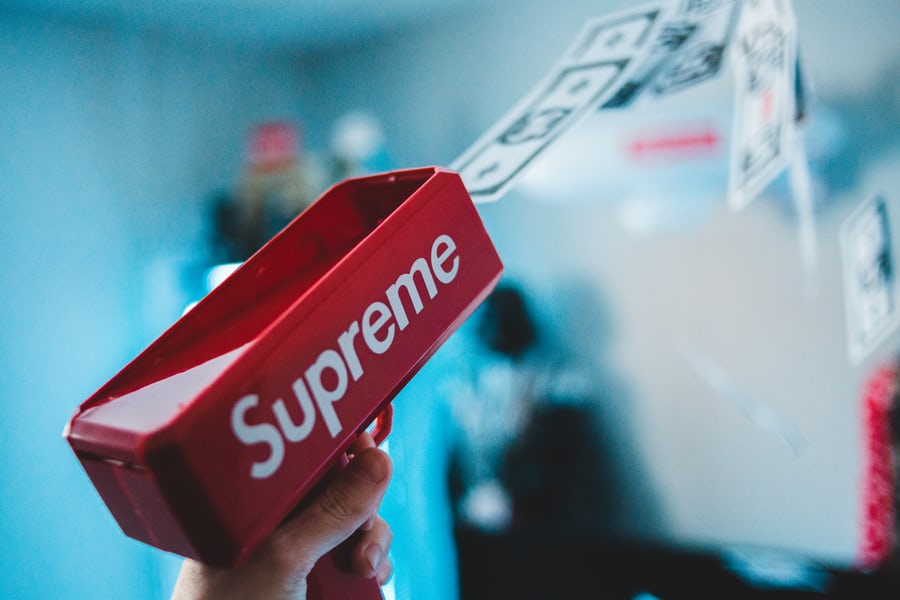Money is a drug.
We all want more of it but have no idea why.
We know we should use it on education, experiences and donations but instead, we just want to show off and look good in front of everyone in order to showcase how far we’ve come and worked.
That’s the problem.
We care too much about what others think and not enough about how we feel.
The richer you are, the more you believe you can get away with anything. That’s what Rick Singer and his clients believed.
Here I will outline the most recent money dilemmas we’ve encountered this year that have lead to suicide, jail time or death due to money schemes from basic plans.
College Admin Side Door
The side door is illegal. The back door is what most wealthy parents use to this day to up the chances of their children to attend prestige universities. They believe without money, the student won’t get in yet more often than not, the student probably would’ve been able to get in just fine on their own but the parents still aren’t convinced until they pay for it just to be dangerously safe.
Money confirms nothing but for the rich, it lets them sleep at night no matter how dangerous the act may be.
As much as we want to blame the parents and orchestrators of these schemes, colleges and universities are all to blame. If they didn’t allow this to happen, it would be stopped by now and fair. They would love your donation of a couple million to help support the facilities, boost paychecks and as a result boost admin prices and lower the acceptance rates at school. As a reward for over 1 million, that will certify your child’s acceptance no matter how badly their face is photoshopped onto that rower’s body.
Although I rarely watch TV, “Varsity Blues”, a documentary about the college admin scandals felt necessary to watch as a 2nd yr student last weekend.
It is appalling that families take advantage of illegal systems assuming that money will keep them out of trouble when every other teen is just trying to put their best foot forward and feels like a failure when a fake rowing recruit makes it in due to their privilege.
As a junior in HS 3 years ago, I knew I had little to no chances of going to any school. I applied to as many as I could even though there was a charge for each school’s application. I was convinced I couldn’t get into anywhere.
Fortunately, fast forward to today, I’m almost half way done with my studies at NYU. I was surprised to get in, let alone get on the waitlist due to my horrible test taking skills for the ACT/SAT/AP Exams and not being president of some astrology or Model UN club.
As a high scholar, I just read, played with my dog and didn’t even play team tennis. Instead I was a tennis coach, worked as a programmer, built a few apps and ran a startup which may have boosted my chances as well.
Regardless, this isn’t about me, it’s about this system and why kids are beating themselves up for it. If money wasn’t an issue, this wouldn’t exist. If the education system was fair and schools weren’t addicted to money, then everyone would get in equally.
Unfortunately it doesn’t work out that way because schools are a business. They are looking for alumni that cam represent them best and people with money to stay in order to give them more overtime and invite them to networking events, etc.
No matter how much they try to argue against the allegations that money doesn’t have any influence in their process, it clearly does.

Money Power, Money Danger
When we think of colleges we rank them like jobs and beat ourselves up for not getting into a school 95% the rest of the US wants to get into, disregarding all the other terrific options that provide the same education.
There are over 3k schools in the US and I know, although this process is still not fair, companies are attempting to now accept students from a variety of schools.
Clearly, every institution, in and out of the educational system needs some work.
Yet what’s really astonishing was the scheme behind this process. I knew there were scandals but didn’t know how colleges were actually ranked. Most assume the top are based on outcome and success of students.
They aren’t.
They are based on prestige which in French means deceit. More donations they get, sadly the more likelier they are to accept you.
Money plays an influence in how we think and what we do.
We feel invisible when we have too much and believe we can get away with things others cannot do.
My colleague’s parents from HS foolishly thought so as well. They ended up paying roughly 2 million for buildings, a fake rowing recruit (their daughter) and other philanthropic efforts to get her involved. I cannot comment if they were involved with Singer or not but all I can say is that it really wasn’t worth it.
I don’t know how stupid money can make people but who could think this could go smoothly?
Since a majority of my readers are in my age group, whether or not you’ve gone through the college process or looking into it, it is best to understand there are countless studies that prove the college you attend has little to no effect on where you’ll end up.
Choose based on needs not ranking.
Down the road no one cares where you went, they care if you can get the job done.
Rankings are deceiving. Choose wisely and know you can get a great education anywhere if you want one.

Story #2: FOMO Investing
As we’ve all witnessed in the news at the end of January, the frenzy meme stock rally occurred which led unprofitable stocks such as GameStop, AMC and Blackberry to soar for absolutely no reason. This lead first time investors with no fundamentals or reason to invest to pretend this is a game. Anything electronic is dangerous, especially money since you don’t comprehend the amount.
As I’ve said before, investing is about long term strategic thinking. It shouldn’t be about short term quick gains that go nowhere. This isn’t timing the market or waiting until a drop to buy. There’s a ton of evidence to prove that active investing rarely beats out passive investing, if not at all and passive investing (long term approach buying based on fundamentals and value driven stocks) are always the way to grow to build wealth not win the lottery.
Borrowing money and youngsters was a tool that Robinhood capitalized on. They allowed retail traders (every day investors, most with little sums of money to waste simply for buying options/derivatives for fun and test out the waters) to buy on margin (take out a loan to trade). Robinhood halted trading for certain stocks such as GameStop because they didn’t have enough cash to supply it through a payment order flow (when a third party firm compensates a brokerage for first-access to their order flow-Robinhood to Citadel).
Investing is very dangerous if you don’t have the fundamentals right.
Even though it’s suggested to start early, make sure you have an understanding of what you are investing in, when you want to withdraw the funds and think long term not short term. Having a basis will truly serve you right. Those who did not prepare or educate themselves clearly lost big.
This isn’t a game.
Investing FOMO is real so separate emotions from actions quick.
This is your hard earned money on the line after all.
Money is a dangerous tool and asset.
You can decide how it will serve you best once you have the education and make realistic judgements.
Money can make or break you so make sure to stay vigilant and aware of where you’re headed when you give it away.
There’s no guarantee.

